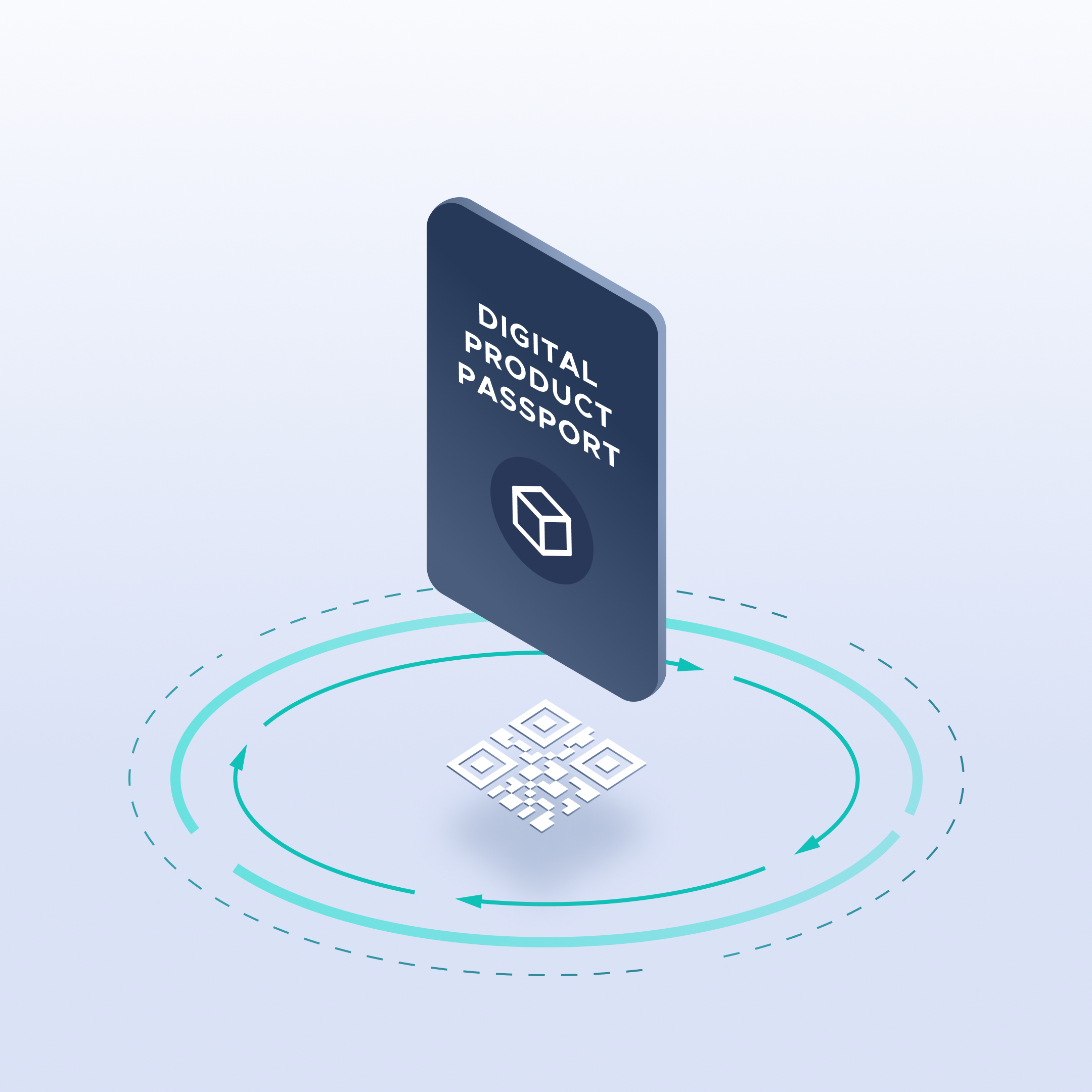What are Digital Product Passports?
In its simplest terms, the EU digital product passports (DPPs) are digital records that reflect a physical product and are typically linked to a QR code, barcode, or other tagging system. The digital record aims to improve the traceability of a product throughout its entire lifecycle.
Initially developed by the European Commission as a part of the Ecodesign for Sustainable Products Regulation and the Circular Economy Action Plan, to improve the sustainability of products and their production, the use cases of digital product passports (DPPs) have expanded across all industries – especially with environmental concerns and new regulations on the rise. Additionally, with the rise of AI, automation, and blockchain technologies, DPPs uses and integrations have been propelled forward.
Reflecting the physical development of a product, digital product passports (DPPs) are a wealth of knowledge when it comes to specific data about a product’s production methods to end-of-life disposal – and can help consumers make more informed decisions.
Although the European Union initially developed DPPs for the textile, construction, and EV battery sectors in Europe, the use cases for DPPs are expanding to every industry and individual products, striving for improved environmental impact. Whether it’s improved sourcing of raw materials, changing product textiles, or reducing overall emissions, with adequate product data companies are empowered to make the sustainable changes they need.
With access to detailed product information companies can more easily drive change towards a more circular economy, coupled with the durability and transparency of supply chains.
Specification Data Management tools such as Specright can help create effective digital product passports as they offer standardized and digitized data accessible to every team member. With this information and traceability, the creation of transparent and comprehensive DPPs can be done much more seamlessly.
How Digital Product Passports Work
Digital Product Passports (DPPs) offer a forward-thinking approach to managing lifecycle product data. But how do DPPs actually work and what information should they include?
The bulk of Digital Product Passports rely on the detailed data that goes into them, including general information about the product’s origin, manufacturing process, materials, environmental impacts, and other procurement information.
Additionally, data related to product storage, usage, and maintenance may also be included. In order to create more circular products DPPs should also include information about reuse and recycling of the product.
With access to such data businesses and consumers are entities to a much more transparent and comprehensive view of a product’s environmental and ethical footprint. However, it is important that this information remains secure and reliable.
This is why leveraging current technologies that provide valid and decentralized data is of high value during the creation of your team’s digital product passports. With blockchain technology companies have access to traceable, accurate, and searchable data that other legacy systems cannot provide.
Specright’s Specification Data Management platform leverages blockchain technology and all of its advantages to drive DPPs forward. By increasing visibility at the spec level and encompassing all moving parts of the supply chain, companies can improve data collection and the development of reliable digital product passports.
Benefits of Digital Product Passports
With a huge push towards circular business models and product sustainability companies are given an opportunity to unlock many new business opportunities and improve their overall value chain. For example, companies may consider tapping into circularity models that open up new product channels for reusable or reparable product options.
Additionally, with the transparency and traceability offered by digital product passports, companies can give various stakeholder groups the data they are looking for to improve relationships and consumer trust.
This is especially important in markets where greenwashing is of high concern for consumers. Digital passports eliminate this uncertainty by clearly showing the environmental footprint of products in both a secure and validated way for the end-user.
And beyond improved stakeholder relationships, digital product passports will also improve regulatory and compliance requirements. Around the globe, different industries and product groups are looking for ways to reduce carbon footprints. DPPs enable companies to track and report on sustainability metrics easily, demonstrating necessary sustainability compliance.
Digital product passports can serve as a one-stop shop when businesses are looking for product data to ensure compliance and build sustainable product lifecycle management.
Challenges of Digital Product Passports
Accompanied by any type of change comes various challenges. When it comes to digital product passports (DPPs) organizations may face operational hurdles and remanufacturing challenges restricting them from change.
With comfortable business practices already in place, companies can find the integration of new DPP models into existing systems difficult – especially when you need every team all in. Company members may be resistant to change. Businesses need a cultural shift that encourages buy-in and shows team members the individual benefits of implementing this new technology.
During this process, companies may also discover that their data is siloed or inaccurate making the completion of DPPs feel impossible. Aligning internal teams on the process is essential but can take time and detailed employee training.
Operational challenges aside, security and privacy also pose their own unique concerns. Ensuring the integrity and confidentiality of product and supply chain data is critical, as any leak of data could result in a loss of consumer trust and public reputation.
All this being said, at the end of the day, it is easy to say that the pros outweigh the cons when it comes to digital product passports.
Future of Digital Product Passports
The future of digital product passports will be far-reaching. It’s clear that sustainability and circularity are here to stay which is why implementing initiatives like DPP is essential for companies looking to stay ahead of competitors.
Going forward DPPs are likely to become a more integral piece of product lifecycle management, especially as policy-making bodies such as the European Union start to push sustainable legislation forward.
Emerging technologies and advancements in blockchain and artificial intelligence with also likely improve the power of digital product passports in the near future.
Specright’s Specification Data Management platform can improve companies’ ability to seamlessly integrate digital product passports with its technology. With a spec-first approach, companies have visibility into product data and all the moving parts of their supply chain. To learn more about Specright Network, be a part of the beta trial, or book a meeting with our team.
Explore More Blogs
Get Started
With Specright’s Solution Suite, you can digitize, centralize, and link your specification data to drive efficiencies, intelligence, traceability, and collaboration within your organization and across your supply chain network.



